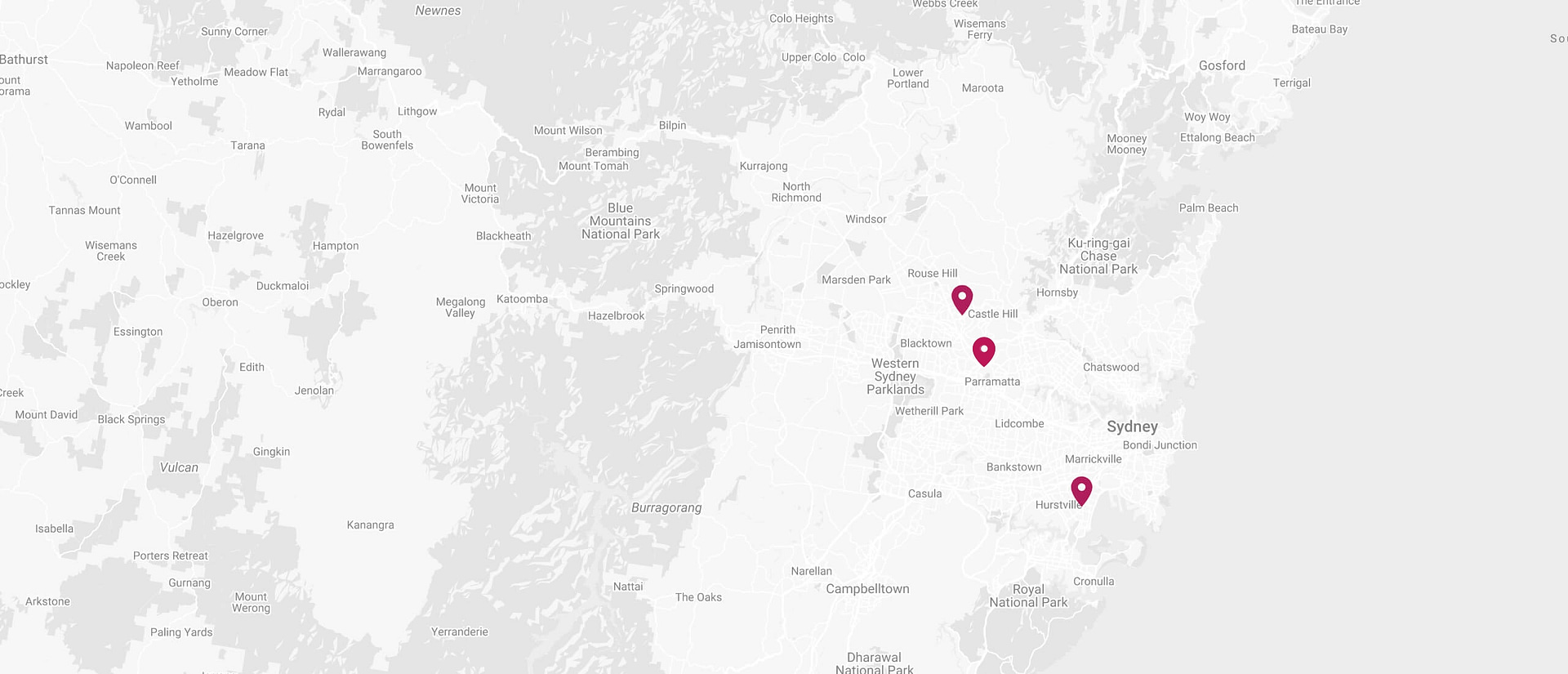Ovarian cysts treatment & management | Sydney gynaecologist Dr Mahadik
cysts
Ovarian cysts | Sydney gynaecologist Dr Mahadik
What are ovarian cysts?
What are the symptoms of ovarian cysts?
Ovarian cysts are so common that many women have them at some point in their lifetime. Most cysts are painless and harmless and disappear within a few months without treatment. Large cysts can cause symptoms:
- Bloating
- Frequent urination
- Pelvic pain, pressure or fullness
- Unusual vaginal bleeding
If you have these symptoms you should see your doctor. They will perform a pelvic exam to determine possible causes for your symptoms.
Ruptured cysts cause severe pain and internal bleeding. Larger cysts are more likely to rupture. You should seek immediate medical attention if you have:
- Sudden and severe abdominal or pelvic pain
- Fever or vomiting
- Signs of shock (cold, clammy skin; rapid breathing; lightheadedness or weakness)
Cysts can become very large and move the ovary out of position. This can cause painful torsion (twisting) of the ovary. This can result in decreased or blocked blood flow to the ovary.
Your risk of ovarian cancer increases as you age. Post-menopausal women are at a greater risk.
Cysts during pregnancy should be monitored in case they twist, rupture or cause problems during childbirth. Most ovarian cysts do not impact your chances of getting pregnant. Although, if there is an underlying condition that is causing your cysts these may impact fertility such as endometriosis.
Ovarian cyst test| Sydney gynaecologist Dr Mahadik
Ovarian Cyst tests
If you think you have an ovarian cyst your doctor will do a pelvic exam. Your doctor may watch and wait or order tests to determine treatment (especially if you have pain). Testing includes:
- An ultrasound to see the shape, size, location and make up of the cysts (fluid or solid)
- A hormone level test to check for hormone-related problems
- Blood tests if you are postmenopausal to measure cancer-antigen 125 (CA-125) in your blood. This is associated with ovarian cancer
- Pregnancy tests to rule out pregnancy

Ovarian cyst treatment | Dr Mahadik | Gynaecologist Sydney
Ovarian cyst treatment
Depending on how much discomfort the cyst is causing you, your doctor may recommend treatment. They may prescribe pain medication (over the counter or stronger medications) or hormonal birth control if you have cysts often. Hormonal birth control can lower the chance of you developing more cysts.
Your cyst may require surgery. This is necessary in 10% of women. A removed cyst will be sent for testing. Surgery is recommended if:
- You are post-menopausal
- The cyst has not gone away after several menstrual cycles
- The cyst gets larger
- The cysts cause pain
- The cyst looks unusual on the ultrasound
Your doctor may remove the cyst or may need to remove your entire ovary. Surgery can be performed via:
- Laparoscopy – A tiny cut is made in or near your belly button to enter your body, and look around your pelvic area with a camera and remove the cyst via keyhole surgery
- Laparotomy – A larger cut in the belly is used to remove the cyst. If your cyst is large or looks suspicious this method will likely be used. If there is a suspicion that the cyst is cancerous then a gynecologic oncologist may need to perform the surgery and remove the ovary and other tissues, like the uterus
Ovarian cyst FAQ | Dr Mahadik | Gynaecologist Sydney
Frequently asked questions about ovarian cysts
Ovarian cysts are common in all women who have regular periods. Most women will develop at least one cyst every month (or with every period). You probably won’t be aware that you have a cysts unless problems occur making the cyst grow very large or multiple cysts develop.
Ovarian cysts are less common after menopause. If you develop them post-menopause you may be at a higher risk of ovarian cancer.
The risk of developing ovarian cysts increases if you have:
- A history of ovarian cysts – if you’ve had one you’re likely to develop more
- Hormonal problems or take clomiphene (which causes you to ovulate)
- Endometriosis
- Pregnancy – sometimes the cyst that forms when you ovulate remains on your ovary during your pregnancy
Ovarian cysts develop as a result of your normal menstrual cycle. Each month your ovaries grow follicles. These follicles produce oestrogen and progesterone which stimulates your ovaries to release an egg during ovulation. When these follicles keep growing they turn into ‘functional cysts’. These are usually harmless and rarely cause pain. They usually disappear on their own within two or three menstrual cycles.
Other types of cysts are less common but can develop too. These are:
- Dermoid cysts (teratomas) – Cysts formed from embryonic cells that contain issues like skin, teeth or hair. These are rarely cancerous
- Cystadenomas – Cysts that develop on the surface of an ovary and are filled by mucus or a watery material
- Endometriomas – Cysts that develop from endometriosis where the uterine cells growing outside of the uterus have attached to your ovary and formed a growth
Sydney Obstetrician Norwest and St George Private Hospitals
Consulting in Westmead and Kogarah
My consulting rooms are in Westmead. If you are preparing for your antenatal care and looking for the best and most suitable solution, you can count on my practice to help you.
If you live in the Sydney CBD, or south of Sydney, you may be best served by coming to my rooms in Kogarah, at St George Private Hospital Medical Suites.
I am affiliated with Norwest Private Hospital, St George Private Hospital and Westmead Private Hospital.
Westmead Private Hospital welcomes over 2,300 babies into the world each year. They demonstrate a leading and innovative approach to outcome-focused care for women and their families prior to, during and after childbirth.
New parents will enjoy the modern conveniences and perks of a luxury hotel when they experience Westmead Private Hospital’s maternity unit, which has a strong emphasis on assisting new families in the journey of parenthood, with comprehensive postnatal education provided by their maternity team.
They have the unique advantage of being co-located with both Westmead Hospital and Westmead Children’s Hospital. This allows us to provide our patients with the highest standard of private care whilst having access to tertiary level care facilities if required (*access to Neonatal Intensive Care at Westmead Hospital and Westmead Children’s Hospital is dependent on bed availability).
The Maternity Unit comprises:
- 8 birthing suites
- 46 bed antenatal/ post natal unit
- 14 cot Special Care Nursery
- 8 spacious Parenting Suites (additional costs apply)
- Women’s only Infant Feeding Support Centre supported by experienced clinicians
- Education Centre
- Bathing Centre
- Rooftop garden for the whole family to enjoy
- All private rooms with ensuite
Guaranteed Private Room
Westmead Private Hospital is pleased to offer all of our maternity patients the guarantee of a private room following the birth of their baby. One support person is welcome to stay free of charge.
More information on the maternity services at Westmead Private Hospital.
I come from a family of doctors and it has always been my intuitive first choice to become an Obstetrician and Gynaecologist. I basically grew up in it, with my father being one of the co-founders of a series of IVF clinics in India. Care for mothers and the babies they are expecting has always been my first nature and I am grateful for being able to serve my patients in their journey.
So if you are in that phase where you are not sure how to choose a private obstetrician in Sydney, let’s have a chat so we can plan your antenatal care together.
